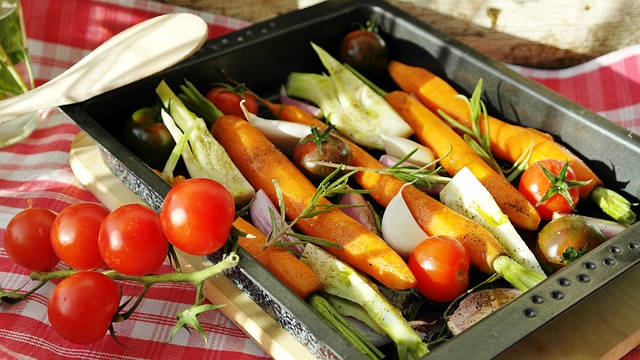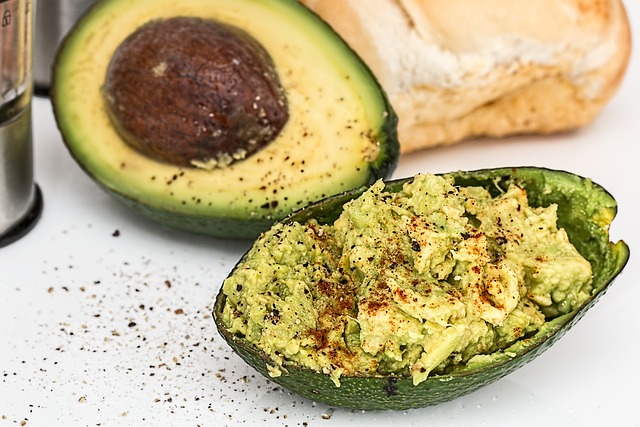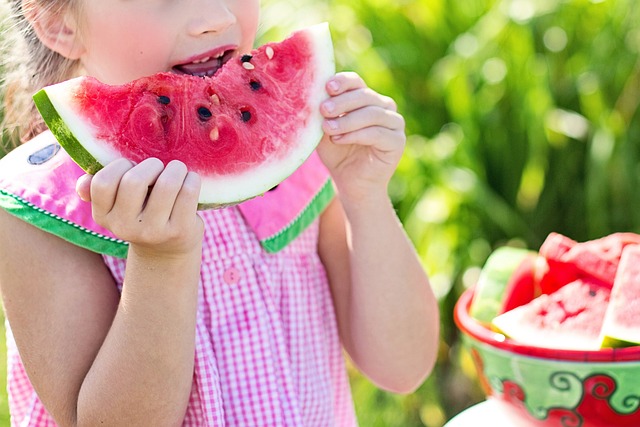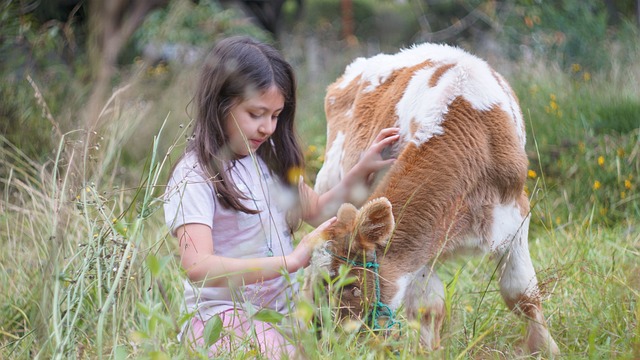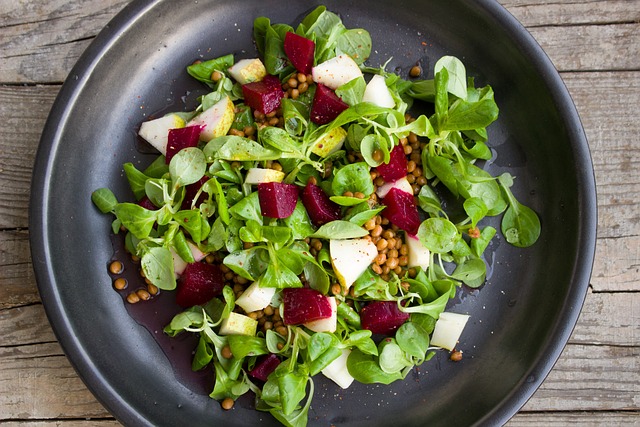Introducing Vegan Cooking into Children’s Routine: Tips to Begin
Introducing vegan cooking into children’s routine is increasingly important in today’s world. With rising concerns about health, animal welfare, and the environment, adopting a plant-based lifestyle has numerous benefits. In this article, we will explore why it is crucial to introduce vegan cooking to children, highlighting the potential advantages for their health, as well as the positive impact on animals and the planet.
Table of Contents
Importance of Introducing Vegan Cooking to Children
When it comes to children’s health, a plant-based diet can provide numerous benefits. Adopting a vegan lifestyle can help children develop healthier eating habits, as it encourages a focus on nutrient-rich foods such as fruits, vegetables, whole grains, and legumes. This can lead to a reduced risk of chronic diseases such as obesity, heart disease, and certain types of cancer. By introducing vegan cooking to children’s routine, we have an opportunity to lay the foundation for a lifetime of healthy choices and well-being.
Beyond health, introducing vegan cooking to children also plays a vital role in promoting empathy and compassion towards animals. By showcasing the connection between the food on their plates and the animals that may have been harmed in the process, children can develop a deeper understanding and respect for all living beings. This not only fosters a sense of empathy but also cultivates values of kindness and compassion as they grow.
Additionally, embracing vegan cooking has a significant positive impact on the environment. Animal agriculture is a leading contributor to deforestation, greenhouse gas emissions, and water pollution. By reducing or eliminating animal products in children’s diets, we can help minimize the ecological footprint and create a more sustainable future for generations to come.
Benefits for Children’s Health, Animal Welfare, and the Environment
The benefits of introducing vegan cooking to children’s routine are vast. From a health perspective, a plant-based diet can provide essential vitamins, minerals, and antioxidants necessary for growth and development. It can also help lower the risk of developing chronic illnesses, including obesity and diabetes, by encouraging the consumption of nutrient-dense foods.
For animal welfare, vegan cooking instills values of compassion and respect towards animals, teaching children that their food choices impact the lives and well-being of animals. By choosing plant-based alternatives, we can help reduce the demand for animal products and support a more ethical and cruelty-free approach to food production.
Furthermore, introducing vegan cooking to children helps to create a more sustainable environment. Animal agriculture is a major contributor to greenhouse gas emissions, deforestation, and water pollution. By reducing the consumption of animal products, we can lower our carbon footprint and mitigate the environmental impact associated with intensive farming practices.
In conclusion, incorporating vegan cooking into children’s routine is a crucial step towards a healthier, kinder, and more sustainable future. By providing children with a foundation of nutritious plant-based meals, we can not only enhance their health but also instill values of empathy, compassion, and environmental consciousness. Let’s embark on this exciting journey together and make a positive impact on our children’s lives and the world they will inherit.
Understanding Veganism
Veganism, often misunderstood, is a lifestyle that excludes the use of animal products for ethical, health, and environmental reasons. It goes beyond just dietary choices and encompasses a broader philosophy of compassion towards animals and the planet. Veganism is about making conscious decisions that align with the belief that all beings, including animals, deserve respect and kindness.
At its core, veganism is centered around abstaining from animal exploitation, cruelty, and suffering. It involves avoiding not only meat and seafood but also dairy, eggs, honey, and other products that are derived from animals. By adopting a vegan lifestyle, individuals take a stand against the harmful practices associated with animal farming and support a more sustainable and compassionate way of living.
While health is a crucial aspect of veganism, the ethical reasons play a significant role in people’s decision to adopt this lifestyle. The concern for animal welfare is deeply ingrained in the vegan philosophy. By choosing to go vegan, individuals actively reject the idea that animals should be treated as commodities or sources of food. Understanding the impact of our choices on animals and the world can be an eye-opening experience that motivates many to embrace veganism.
In addition to the ethical arguments, adopting a vegan lifestyle also has various health benefits. Research has shown that plant-based diets can be nutritionally adequate for individuals of all ages, including children. Vegan diets are typically rich in fruits, vegetables, whole grains, legumes, and nuts, providing essential nutrients such as fiber, vitamins, and minerals. By eliminating animal products, individuals can reduce their intake of saturated fats and cholesterol, leading to a lower risk of obesity, heart disease, and certain types of cancer.
Moreover, veganism has a positive environmental impact. Animal agriculture is a major contributor to greenhouse gas emissions, deforestation, and water pollution. By choosing plant-based alternatives, individuals can significantly reduce their carbon footprint and contribute to preserving the planet for future generations.
In conclusion, understanding veganism is essential for introducing vegan cooking into children’s routine. By familiarizing ourselves with the core principles and reasons behind adopting a vegan lifestyle, we can make informed decisions and guide our children towards healthier and more compassionate choices. Veganism is not just about the food we consume; it is about creating a more sustainable and humane world for ourselves and future generations.
Why Introduce Vegan Cooking to Children?
Introducing vegan cooking into children’s routine can have numerous benefits for their long-term health, their empathy towards animals, and the environment. Adopting a plant-based diet can provide children with a plethora of health benefits, as it is rich in essential nutrients, vitamins, and minerals necessary for their growth and development. A well-balanced vegan diet can provide all the necessary proteins, fats, carbohydrates, and micronutrients that children need for optimal health, promoting healthy weight management, reducing the risk of chronic diseases, and boosting their immune system.
In addition to the physical health benefits, introducing vegan cooking to children can also nurture their empathy and compassion towards animals from an early age. By teaching children about the ethical reasons behind veganism, such as avoiding harm and cruelty to animals, we can instill in them a deep respect for other living beings and an understanding of the interconnectedness of all life forms. This can help children develop a sense of responsibility towards the environment and promote a more compassionate society.
Moreover, reducing animal products in children’s diets can have a significant positive impact on the environment. Animal agriculture is one of the leading contributors to greenhouse gas emissions, deforestation, and water pollution. By embracing vegan cooking, parents can teach their children about the importance of sustainable and environmentally friendly food choices. This can empower children to become stewards of the planet and educate others about the benefits of a plant-based lifestyle.
In conclusion, introducing vegan cooking to children’s routine can yield numerous benefits, including long-term health improvements, the development of empathy and compassion towards animals, and a positive environmental impact. By embracing this lifestyle, parents can ensure their children’s well-being, teach them important values, and contribute to a more sustainable world. It’s a journey worth taking, with countless recipes and experiences waiting to be explored.
Tips for Getting Started
1. Educate Yourself:
Before introducing vegan cooking into your children’s routine, it is essential to familiarize yourself with vegan cooking techniques, ingredients, and nutrition. There are numerous resources available, from cookbooks to online articles and videos, that can help you gain an understanding of the basics. Additionally, consider joining vegan cooking classes or attending workshops to expand your knowledge and skills. By educating yourself, you will be better equipped to provide your children with nutritious and delicious vegan meals.
2. Transition Slowly:
To make the transition to vegan cooking easier for your children, it is advisable to introduce vegan meals gradually. Start by incorporating one or two vegan meals per week into their routine, and gradually increase the frequency as they become more comfortable with the new diet. This gradual approach allows your children to adapt to the changes, both in terms of taste and digestion. It also gives you the opportunity to experiment with different recipes and find the ones that your children enjoy the most.
3. Involve Children in Meal Planning and Preparation:
Engaging your children in the process of choosing recipes and preparing vegan meals can make them more excited and invested in the new cooking routine. Encourage them to pick out recipes that they find interesting or would like to try. Let them help you with tasks such as washing vegetables, measuring ingredients, and stirring pots. This involvement not only teaches them practical cooking skills but also fosters a sense of ownership and empowerment over their food choices.
4. Make it Fun:
One of the keys to making vegan cooking enjoyable for children is to make it fun and engaging. Consider organizing themed meal nights where you can explore different cuisines or focus on specific ingredients. Encourage your children to be creative and experiment with flavors and presentation. You can also involve them in food photography for social media, creating beautiful and appetizing images of their vegan creations. By infusing fun into the cooking process, you can help your children develop a positive association with vegan meals.
5. Educate and Communicate:
When introducing vegan cooking to children, it is crucial to explain the reasons behind veganism in an age-appropriate manner. Emphasize the importance of compassion towards animals, the benefits of a healthy plant-based diet, and the positive impact on the environment. Encourage open and honest conversations with your children, allowing them to ask questions and express their thoughts and feelings. By fostering understanding and empathy, you can help your children develop a strong foundation in veganism.
6. Explore New Foods Together:
Introducing vegan cooking provides an excellent opportunity for your family to explore new foods and flavors. Encourage your children to try unfamiliar vegan ingredients and recipes, expanding their palate and culinary skills. Take them to farmers’ markets or specialty grocery stores, where they can discover a variety of plant-based options. Together, you can embark on an exciting culinary adventure, discovering new favorite dishes and developing a diverse and nutritious diet.
By following these tips, you can smoothly integrate vegan cooking into your children’s routine. Remember, the key is to provide resources and educate yourself, transition slowly, involve your children in meal planning and preparation, make it fun, educate and communicate, and explore new foods together. With patience and creativity, you can lay the foundation for a healthy, compassionate, and sustainable lifestyle for your children.
Overcoming Challenges
When it comes to introducing vegan cooking into children’s routine, parents may face certain challenges and concerns. It’s important to address these issues and provide solutions to help parents successfully navigate this new journey.
Addressing Common Concerns and Challenges
One common concern that parents may have is the resistance or skepticism from their children or other family members. It’s natural for children to have preferences and resist trying new foods, especially if they are used to a different diet. To manage this, patience and persistence are key. Slowly introduce vegan meals into their routine and present them in an appealing and exciting way. Get creative with meal presentations and involve the children in meal planning and preparation. This engages their curiosity and allows them to develop a sense of ownership over their food choices.
Another challenge parents may face is dealing with nutrition-related concerns. Some may worry about whether their children will receive all the necessary nutrients on a vegan diet. It’s crucial to educate oneself on the nutritional aspects of vegan cooking and be aware of the different plant-based sources for essential nutrients such as protein, vitamins, and minerals. Additionally, consider consulting with a registered dietitian who specializes in vegan nutrition to ensure a well-balanced diet for children. By doing so, parents can feel confident in their ability to provide their children with all the necessary nutrients they need to thrive.
Offering Solutions and Tips for Success
To manage potential resistance, it’s helpful to start gradually. Ease into vegan meals by incorporating one or two plant-based meals each week, allowing the whole family to adjust to new flavors and textures. This gradual transition helps children become familiar with the taste and feel of vegan dishes, making it easier for them to embrace the change.
To make the transition more fun and exciting, involve the children in meal planning and preparation. Engage their creativity by allowing them to choose recipes or even assisting in the cooking process. This sense of involvement creates a positive association with vegan cooking and fosters a greater sense of empowerment and curiosity.
Lastly, it’s essential to openly communicate with children about the reasons behind veganism in an age-appropriate manner. Encourage discussions about empathy, health, and the environment. By explaining the benefits and values associated with a vegan lifestyle, children are more likely to embrace the change and develop a deeper understanding of the significance of their food choices.
In conclusion, while introducing vegan cooking into children’s routine may come with its challenges, it’s important to address these concerns and provide solutions. By being patient, persistent, and well-informed about nutrition, parents can successfully navigate this journey. Engaging children in the process, making it fun, and promoting open communication are key factors that contribute to the success of introducing vegan cooking to children. Through these efforts, parents can create a positive and impactful environment that fosters children’s health, empathy, and a better future for the planet.
Conclusion
In conclusion, introducing vegan cooking into children’s routine is a crucial step towards promoting their health, empathy, and environmental consciousness. We have discussed the numerous benefits of adopting a vegan lifestyle, including better health outcomes, a deeper connection with animals, and a positive impact on the planet.
By embracing vegan cooking, parents can provide their children with nutritious and delicious meals that are free from animal products. They can ensure their little ones receive all the necessary nutrients by educating themselves about vegan cooking techniques, ingredients, and nutrition. Educating yourself is the first step towards successfully incorporating vegan meals into your children’s routine.
The key to a successful transition is to transition slowly. Gradually incorporating vegan meals into your children’s routine helps them adjust and appreciate the new flavors and textures. Additionally, involving children in the meal planning and preparation process can make them feel more invested in their meals and create a sense of excitement around vegan cooking.
Making vegan cooking fun is essential to engage children and sustain their interest. Making it fun can involve themed meal nights or even involving them in food photography for social media. This not only makes cooking enjoyable but also teaches them creative ways to express their love for vegan food.
Educating and communicating with children about the reasons behind veganism is important. By explaining the significance of compassion, health, and the environment, children can develop a deeper understanding and appreciation for the choices they make. An age-appropriate approach is crucial in building empathy and compassion.
Lastly, encourage parents and children to explore new foods together. Trying unfamiliar vegan ingredients and recipes expands their palate and culinary skills, making the vegan journey an exciting and adventurous one.
In conclusion, introducing vegan cooking into children’s routines is not only beneficial for their health but also instills values of empathy and compassion towards animals and the environment. Parents play a vital role in guiding their children towards a conscious and ethical lifestyle. By embracing the journey of exploring vegan recipes, they can make a positive impact on their children’s health, empathy, and the environment.


